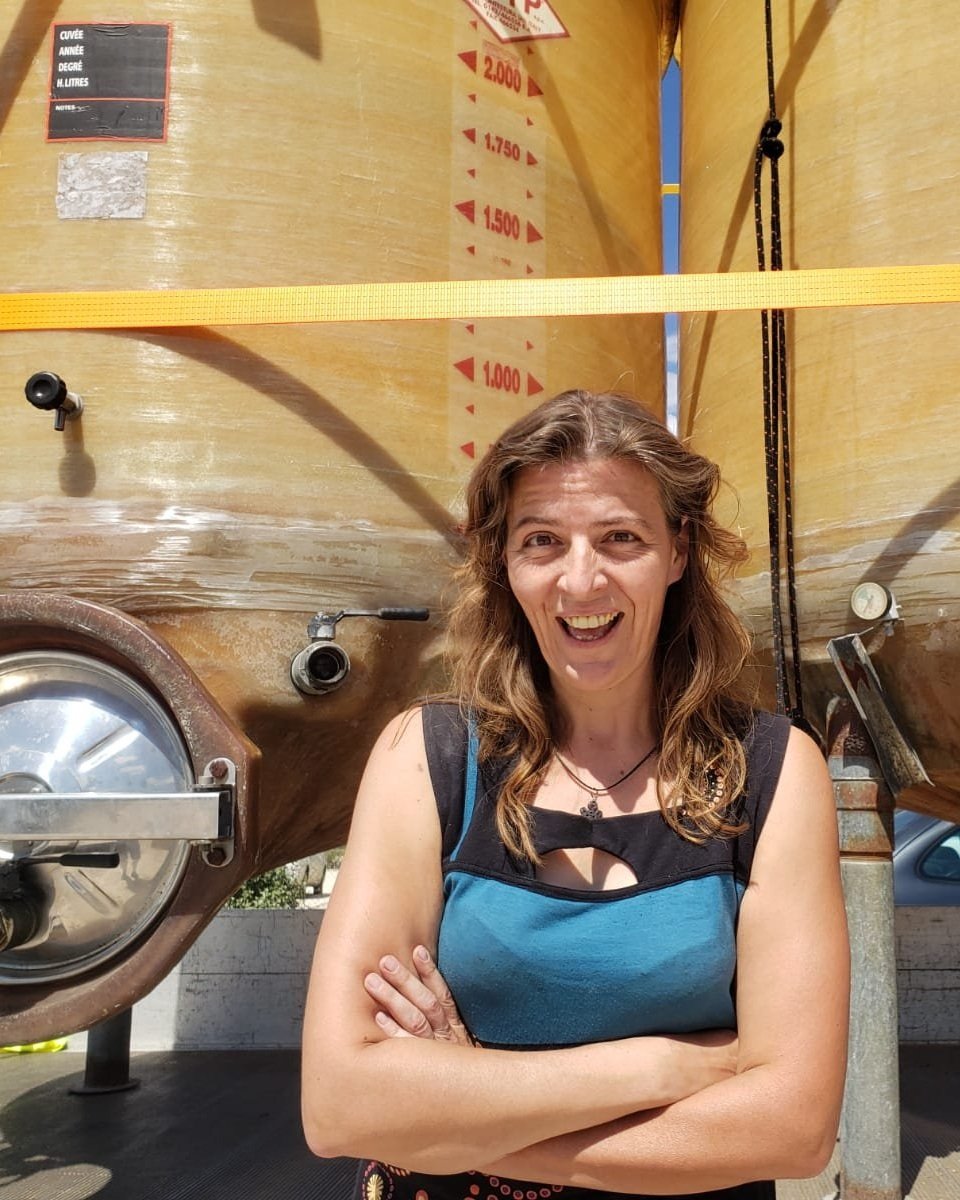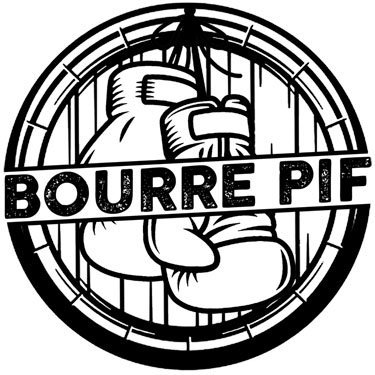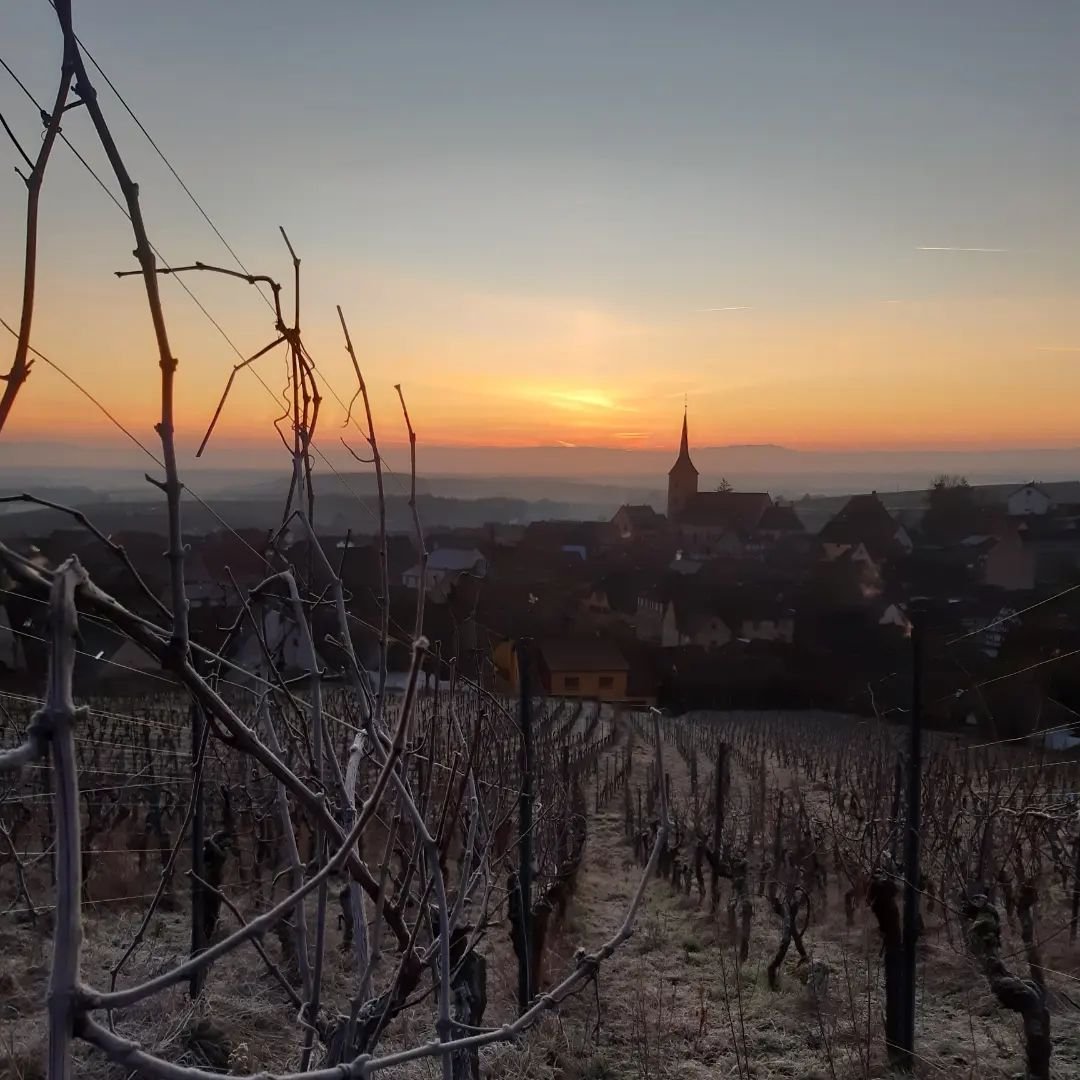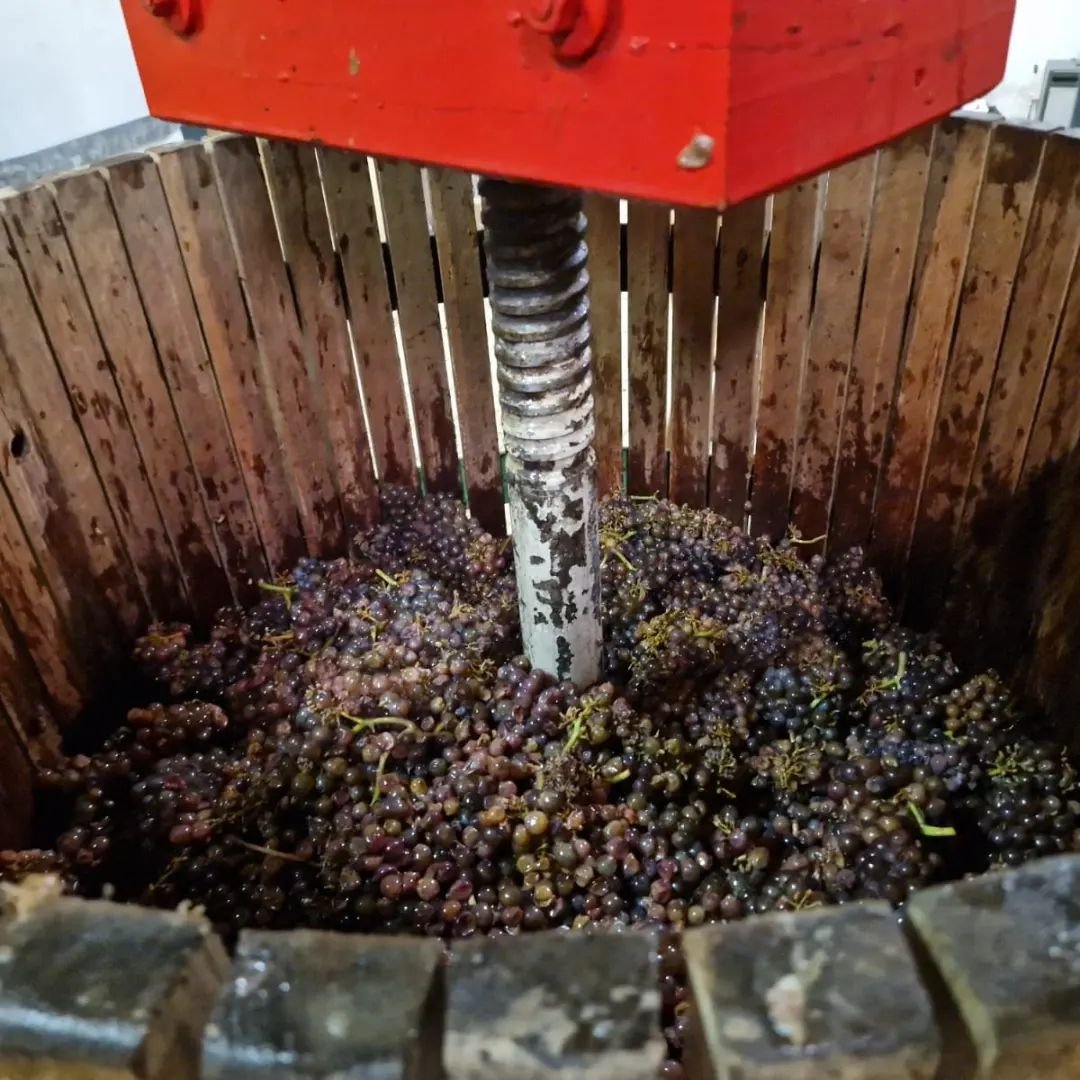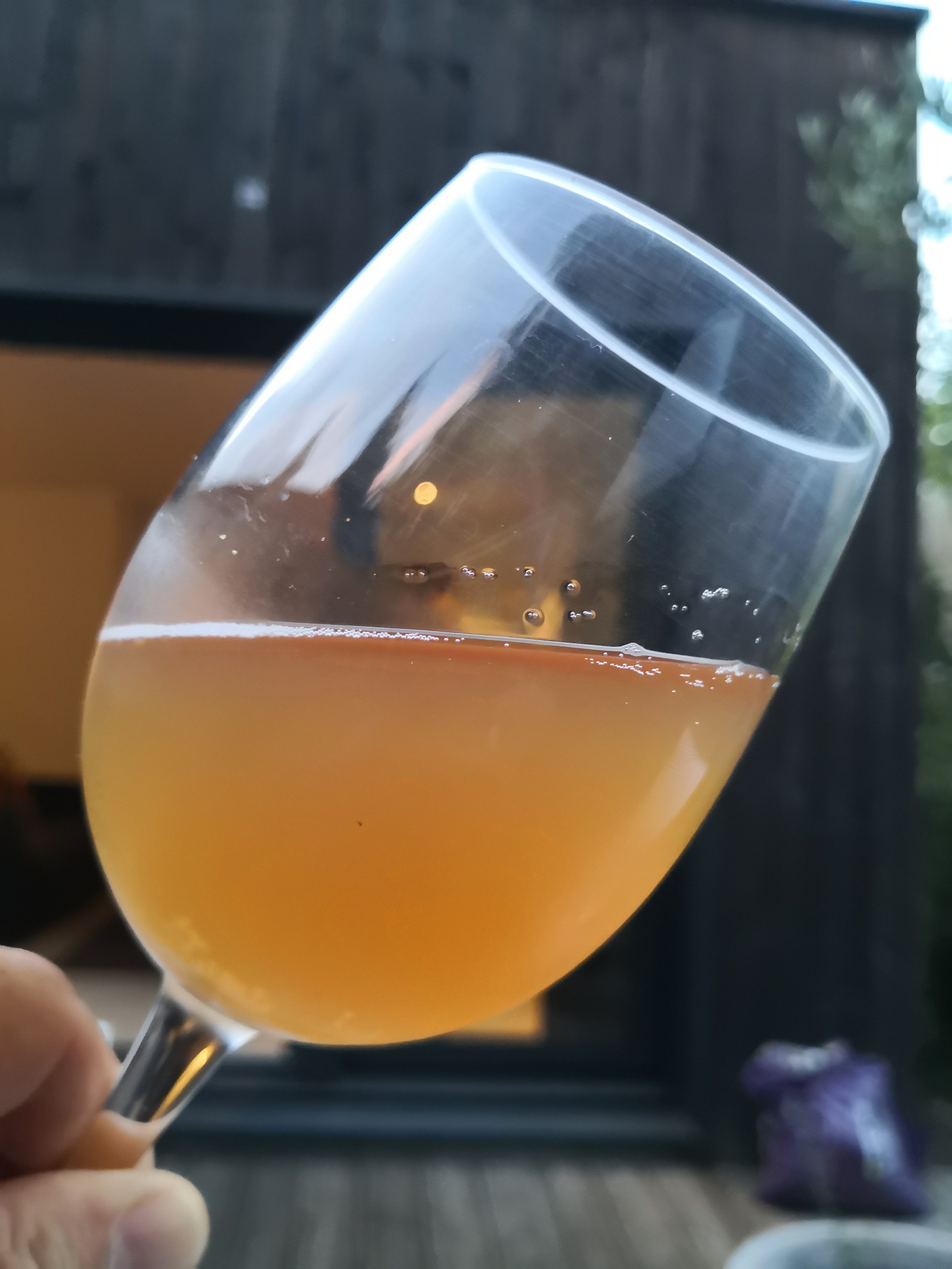Delphine Castel
bourre pif
Scherwiller
Alsace, France
In the winemaking world, and perhaps more so in the natural part of it, one comes across winemakers from all backgrounds - some from wine families who take the proverbial baton from fathers or grandfathers who themselves carried on the family tradition, and others who at one stage or another in their career have chosen a change of direction - but it’s probably rare to come across someone like Delphine Castel and her story. She is from Alsace and was by trade, in fact still is when a rewarding contract comes up, a charpentier metallique which clumsily translated is a metal carpenter. She’s hands on in the construction of large buildings made primarily from steel girders - warehouses, factories, and the like.
Wine really didn’t figure in the equation for Delphine but brewing her own beer for personal consumption and within moderation of course did, and it was only after talking with friends/winemakers who suggested that if she can brew a good beer, why not try your hand at wine, that she began to wear both hats of carpenter and winemaker. She admits to being a little headstrong, so once she decided that she would give it a try, she threw herself and her savings into it and launched Bourre Pif in the only way that she could imagine. With the advantage of having no formal training in winemaking - that’s how she sees it and the finished result speaks for itself - and quite limited experience apart from assisting with bottlings, she was able to start winemaking with just her own firm ideas of making wines from fermented grape juice and nothing more.
Bourre Pif was born in 2022, making just 5000 bottles from bought grapes - one red and one white. The name itself is a play on words, being a slang term for a punch - hence the boxing gloves logo - , but also leads to connotations of drunkenness (bourre) from wine (pif). The white grapes, all Gewurztraminer, came from two growers in Alsace with vines doubly certified both organic and biodynamic, but with reluctance from local growers to share their prized and somewhat rare red grapes, Delphine had to look further afield. She eventually found what she was looking for - healthy and certified organic red grapes - in Canet-en-Roussillon. If your French geography isn’t up-to-scratch, Roussillon is the diametric opposite from Alsace and the first harvest in August 2022 involved a 40-hour marathon from the first snip of the secateurs early one Friday morning, via a full days’ picking, a 12-hour overnight drive back to Alsace to keep the grapes fresh, de-stemming in the cellar, finally arriving in the tank on the Saturday evening.
Now well into her second vintage with the 2023s bottled and after acquiring in December 2023 just under half an acre of Riesling and Pinot Noir vines on the Grand Cru Winzenberg, she has less time to build stuff and more than enough to keep her occupied in the vines.
currently available
laisse pas trainer ton pif 2022
Appellation: Vin de France
Farming: Certified Agriculture Biologique & Demeter
Grapes: Gewürztraminer (bought), 30 to 40 year old vines from two parcels near Epfig on clay-limestone.
Vinification: All de-stemmed and lightly crushed, 11 days skin contact in fibreglass tanks for 2⁄3 of the juice and five days for the remaining 1⁄3. Aged for six months in fibreglass tanks on lees.
Fining: No Filtering: No Added SO2: No Production: 250 cases ABV: 12%
Syrah k47 2022
Appellation: Vin de France
Farming: Certified Agriculture Biologique
Grapes: Syrah (bought), 35 year old vines from a 22 ares (under 0.5 acres) parcel on clay-limestone in Canet-en-Roussillon near Perpignan.
Vinification: De-stemmed then maceration for 21 days in fibreglass tanks. Pressed, then six months on lees in fibreglass. Bottled March 2023.
Fining: No Filtering: No Added SO2: No Production: 160 cases ABV: 13%
